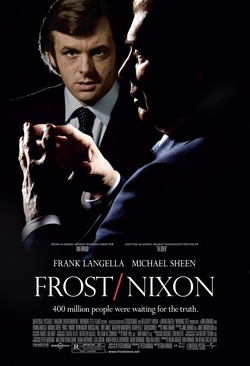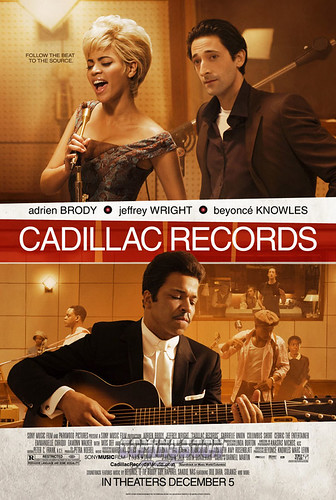 This is of course the highly hyped, highly grossing end of the year blockbuster remake of the 1951 sci-fi classic. To the benefit of the filmmakers it's more of a re-imagining of the story than a simple remake with better visual effects. In fact, the first half hour or so actually showed promise. But then Keanu Reeves started acting, and the whole thing just fell apart.
This is of course the highly hyped, highly grossing end of the year blockbuster remake of the 1951 sci-fi classic. To the benefit of the filmmakers it's more of a re-imagining of the story than a simple remake with better visual effects. In fact, the first half hour or so actually showed promise. But then Keanu Reeves started acting, and the whole thing just fell apart.The primary story is essentially the same. In the original, an alien and an indestructible robot come to Earth to try to broker peace in a way. In a slightly hypocritical fashion the message is "make peace or we will destroy you all." This clear Cold War allegory has been updated to the current crisis facing the planet- the environment. This time, Klaatu (Reeves) has come not too warn the Earth about our polluting ways, but to tell us that it's already too late.
There were some exciting scenes. When Klaatu's ship first arrives, it brought back memories of the breathtaking entrance of the aliens. And to their credit, they did a fairly nice job of updating Gort, the giant robot, while staying true to its original styling. I even kind of dug the concept of it releasing a swarm of nano-robots, or small creatures, or whatever they were. I mean if you were going to destroy all life on a planet, would you do it just by shooting a laser?
Jennifer Connelly plays Helen Benson, a doctor who helps Klaatu, and tries to convince him to not wipe out our species. She is accompanied on this quest by her adopted son (Jaden Smith). The two of them looked positively animated next to Reeves. I understand that the point was to portray him as cold and emotionless, but how could they replace the inquisitive and almost fatherly Klaatu of Michael Rennie with this?
Aside from updating to 21st century visuals, there was no reason for this movie to be made. The Day the Earth Stood Still took one of the classic sci-fi movies of all time, and turned into forgettable drivel. If you haven't seen the original, please, see that instead.






